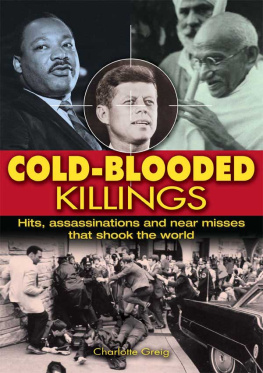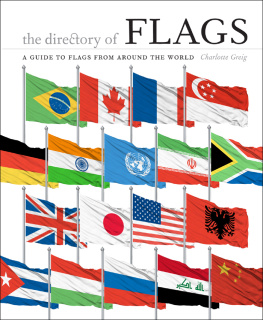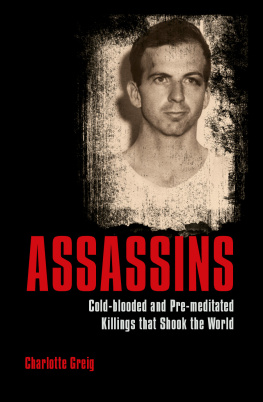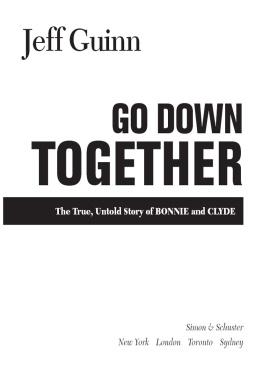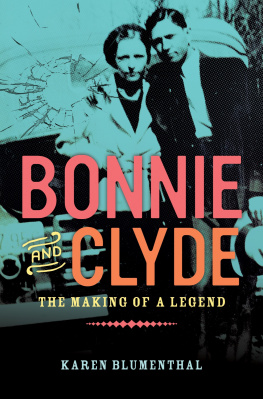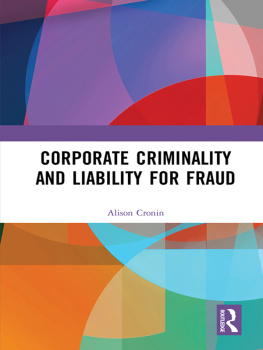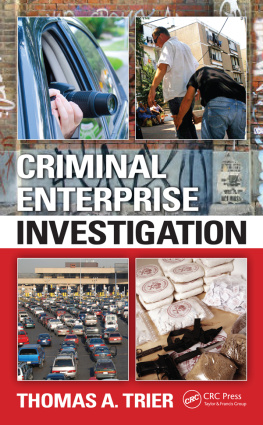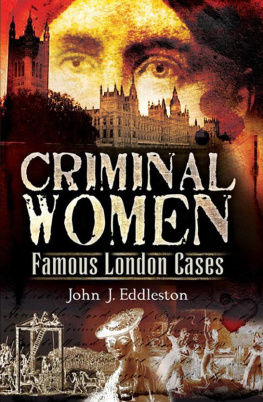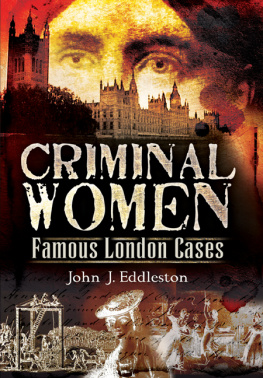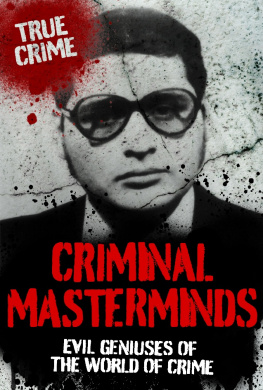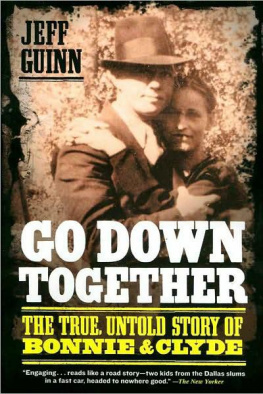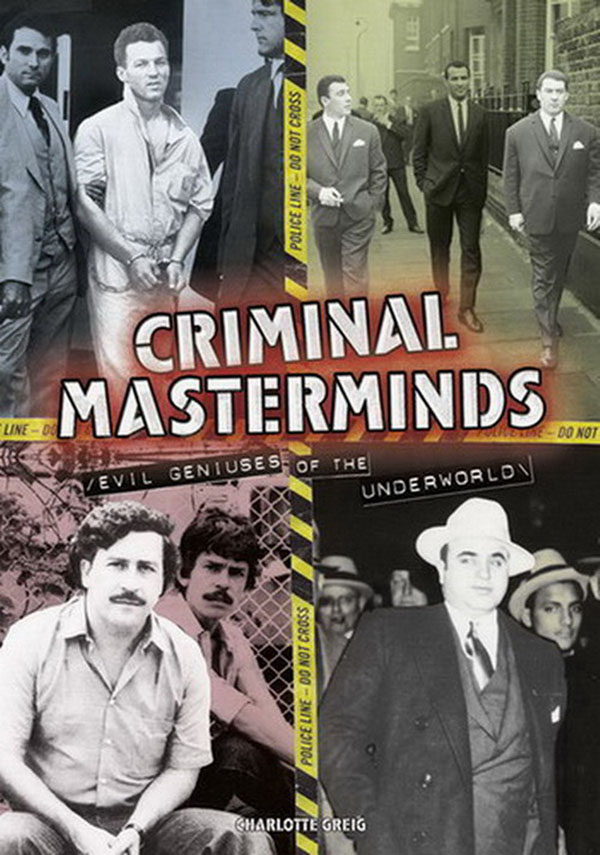

This edition published in 2012 by Arcturus Publishing Limited
26/27 Bickels Yard, 151153 Bermondsey Street,
London SE1 3HA
Copyright 2005 Arcturus Publishing Limited
All rights reserved. No part of this publication may be reproduced, stored in a retrieval system, or transmitted, in any form or by any means, electronic, mechanical, photocopying, recording or otherwise, without written permission in accordance with the provisions of the Copyright Act 1956 (as amended). Any person or persons who do any unauthorised act in relation to this publication may be liable to criminal prosecution and civil claims for damages.
ISBN 978-1-84858-688-8
Cover design by Steve Flight
Acknowledgments
Illustrations reproduced with the kind permission of the following:
Corbis, Getty Images, Kobal Collection (Picture Desk), Rex, Topfoto, Front cover Topfoto and Getty images. For more information contact
CONTENTS
C riminals fascinate us. Sometimes the fascination is rooted in terror as we contemplate monstrous killers and predatory paedophiles. Sometimes it is tinged with admiration as we remember the Robin Hoods, the outlaws in our midst who broke the rules and got away with it, at least for a time. Sometimes we cannot help but be impressed by the sheer energy and ingenuity of the criminal mind as we think of the criminal masterminds who, in another life, might easily have become successful business executives.
This book tells the stories of fifty of the most ruthless, most devious and most effective criminals of all time. It includes stories of masterminds like Anthony 'Fats' Pino, who meticulously planned a bank robbery that became known as 'the crime of the century'; and of powerful drug barons, some of them like Howard Marks with a moral code of sorts, and others like the Arellano-Felix brothers entirely without. Also included are the terrorist masterminds who, in recent years, have struck at the heart of western civilization: from major figures like the elusive Osama bin Laden to desperate, lone individuals such as Ted Kaczynski, known as 'The Unabomber'.
From humour to horror
Not all the stories of criminal masterminds are disturbing, however. Some are amusing, because of the sheer cheek of the criminals: in particular, the fraudsters, from Frank 'Catch Me If You Can' Abagnale to Count Victor Lustig, who became famous for 'selling' the Eiffel Tower twice. Others are exciting, such as the adventures of swashbuckling escape artists like Jack Sheppard and 'Papillon', or outlaws such as Butch Cassidy and Ned Kelly, who became folk heroes as tales of their audacious heists and brave escapes were handed down through history.
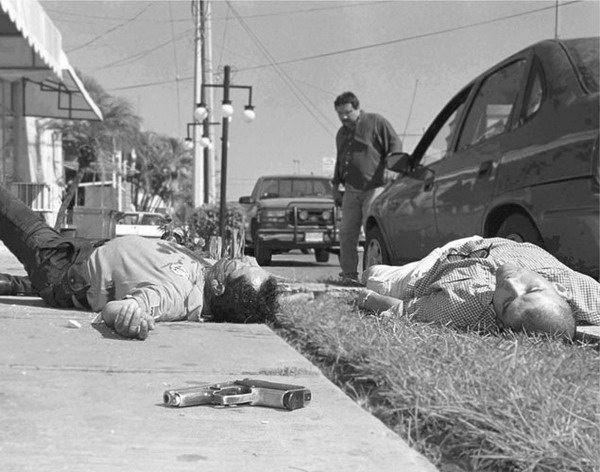
Like a scene from a Hollywood film the gunned-down 'El Mon' of the Tijuana cartel
Other stories are frankly horrifying, such as those of murderers Charles Manson and Jack Unterweger, who somehow managed to convince impressionable people around them that they were heroes (in Manson's case, his followers actually believed he was a god). These are the cases that raise questions in our minds, not only about the brutality of psychopaths, but also about the way apparently ordinary people allow themselves to be led into evil, through a mixture of gullibility and a fascination with violence.
Does the end justify the means?
In this book you will read tales of ruthless mobsters, from Al Capone to John Gotti, that set us wondering about the social reasons why bright, talented young men growing up in poverty turn to a life of crime; could it be that, if dealt a different hand of cards in life's game, they might have become players in the legal, corporate world instead of brutal killers in the underworld of crime?
In the same way, the stories of double agents, whether all-American boys like Christopher Boyce and Aldrich Ames or urbane upper-class Britons such as Kim Philby and Anthony Blunt, give us food for thought: were these individuals, all highly intelligent people, essentially acting out of self-interest, or did they feel a sense of moral indignation at what they perceived as their governments' corrupt practices? Was it perhaps that they simply got caught up in a web of lies to such a degree that, in the end, they could no longer tell wrong from right? By the end of these stories, we begin to realize that once human beings whether individuals or governments begin to operate on the basis that 'the end justifies the means', in a short time our civilized moral code becomes meaningless.
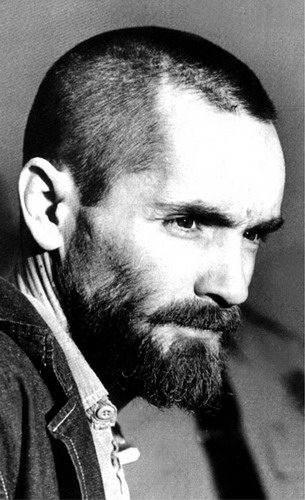
The infamous Charles Manson shaved his head to be more like the Devil
What makes a criminal?
This book explores the lives of these master criminals as we attempt to answer the question: what is it that makes one person of great abilities a hero, and another a criminal? For, in the main, these are stories of talented or charismatic individuals who use their talents in the service of evil rather than good. The question is, why?
In a sense, the answer is obvious. Most criminals whether stupid or clever act out of a combination of greed, self-interest and lack of concern for others. The gains and the risks are clear enough. As Willie 'The Actor' Sutton allegedly put it, when asked why he robbed banks: 'Because that's where the money is.' However, the picture that emerges from these stories is actually a more complex one.
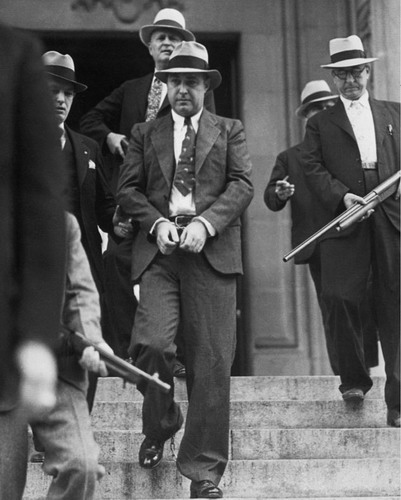
George 'Machine Gun' Kelly: for the first time on the legal end of a gun
As one would expect, the social milieu in which criminals grow up usually has a major part to play in their career choice. During the Prohibition period, career opportunities in the legal world were few and far between for immigrant youngsters raised on the mean streets of America's big cities. It is therefore no wonder that the more ambitious and ingenious among them turned to bootlegging, drug running and the like to make their fortunes, rather than spend their lives working for a pittance in the same kind of dead-end jobs as their parents. However, even in this category, there are exceptions. Arnold Rothstein, for example the man known as 'The Big Bankroll' was the son of a wealthy New York Jewish businessman, and could easily have chosen from a range of middle-class careers. Why, then, did he choose to become a gangster instead?
Perhaps it was for financial gain. Before he met his violent end, Rothstein had become an immensely wealthy man. However, his history shows that there were emotional reasons why he may have chosen to become a gangland criminal rather than a respectable businessman. From an early age, he had been rejected by his parents, and it may be that he later took to crime as a form of rebellion against his family and its culture. Certainly, this trajectory is common enough among criminals from well-todo families; although here, once again, the picture is not always simple. In some cases, such as that of George 'Machine Gun' Kelly, one cannot help feeling that, no matter what the circumstances, here was a young man bent on a life of violent crime, for whatever reason.
Next page
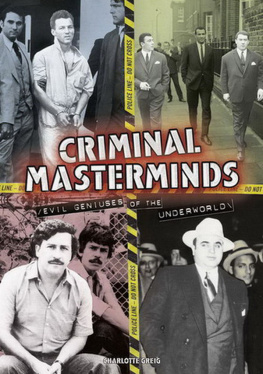
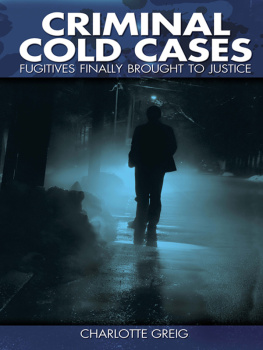
![Charlotte Greig - Evil Serial Killers. In the Minds of Monsters [Fully Illustrated]](/uploads/posts/book/70143/thumbs/charlotte-greig-evil-serial-killers-in-the-minds.jpg)
